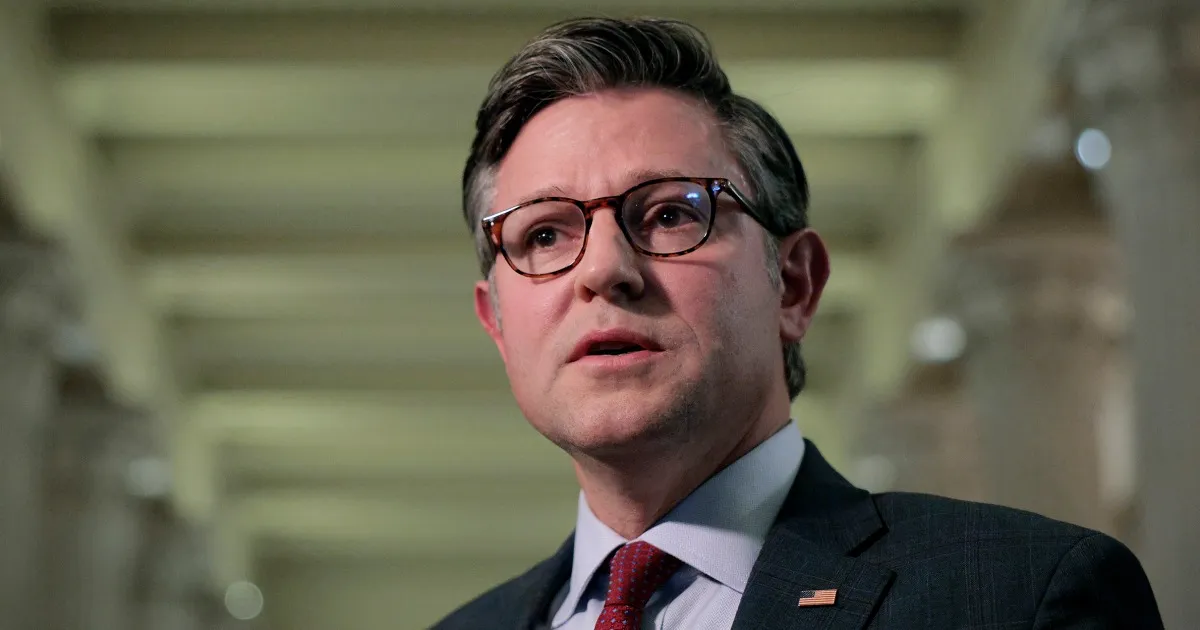
On Friday, the Republican-controlled House passed a critical stopgap funding bill, designed to keep the government operational until just before Thanksgiving. The vote concluded with a narrow margin of 217-212, where one Democrat, Rep. Jared Golden from Maine, sided with Republicans in support of the bill. Conversely, two Republicans—conservative Reps. Tim Burchett of Tennessee and Victoria Spartz of Indiana—along with all other Democrats opposed the measure.
The short-term funding legislation, known as a continuing resolution (CR), is now on its way to the Senate. There, Senate Minority Leader Chuck Schumer, D-N.Y., along with other Democratic leaders, has expressed intentions to defeat the bill, proposing their own alternative funding plan. Both the House and Senate measures are anticipated to face rejection on the Senate floor later today.
What follows this vote remains uncertain. To successfully overcome a filibuster in the Senate, a total of 60 votes is required. This means any bill aimed at averting a government shutdown and providing more time for appropriators to negotiate a longer-term funding solution must be bipartisan in nature.
The House's funding bill proposes to extend federal funding at existing levels, maintaining government operations through November 21. In contrast, the Senate Democratic bill seeks to fund the government until October 31, but includes several policy stipulations. Key provisions of the Democratic plan include a permanent extension of Obamacare subsidies that are set to expire at year-end, as well as the reversal of Medicaid cuts established under former President Donald Trump’s administration. Furthermore, it aims to address Trump-era funding cuts that have upset Democrats by lifting a freeze on foreign aid and restoring funding for public broadcasting.
Senator Schumer articulated the Democratic perspective, stating, “Democrats have a different option. We address the crises Americans face in health care, Medicaid, inflation, and rising costs.” He accused Trump of instructing House Speaker Mike Johnson, R-La., and Senate Majority Leader John Thune, R-S.D., to avoid negotiations with Democrats regarding government funding. Schumer emphasized, “When Donald Trump says don’t negotiate with Democrats, they don’t, and come up with 20 excuses.”
In a recent appearance on Fox News, Johnson defended the GOP's funding legislation, which has Trump’s backing. He characterized the proposal as a clean CR, a claim disputed by Democrats who argue that it merely prolongs the funding levels established by Trump's cuts. “We need a few more weeks to finish this important work on a longer-term funding deal,” Johnson insisted. He labeled the House’s bill as a responsible and straightforward measure to maintain government operation.
If the House and Senate cannot align on a funding bill that also gains Trump’s signature, a government shutdown could occur on October 1, coinciding with the start of the new fiscal year. In the event of a shutdown, mandatory services such as Border Patrol, the Postal Service, and Social Security would continue to function, but many federal workers, including military personnel, would not receive pay.
Next week, both the House and Senate are scheduled to recess for Rosh Hashanah. The House plans to reconvene on September 29 and 30, although GOP leaders are contemplating canceling these days to escalate pressure on Senate Democrats to accept the House-passed bill.
In light of recent events, particularly the tragic assassination of Charlie Kirk, the House bill allocates $58 million for enhanced security for executive and judicial branches. Additionally, it includes $30 million designated for increased safety measures for members of Congress, which encompasses mutual aid to reimburse local police for expenses incurred while protecting lawmakers at public gatherings.
Bipartisan negotiators are also discussing further security funding in their upcoming spending bills for fiscal year 2026. “When you have a significant event like the tragic shooting of our friend Charlie Kirk, it brings attention to security concerns,” Johnson remarked. “We are in a constant process of improvement, ensuring we have the latest technology and resources available to guarantee safety for those representing their constituents.”